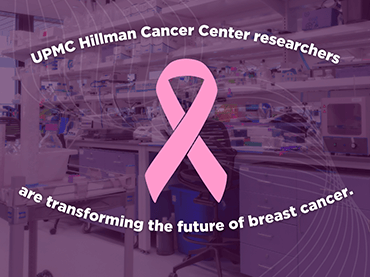-
Research
-
Community Outreach
- Community Outreach
Community Outreach - Education & Training
- Researchers
-
Research
- Research Programs
-
Shared Resources
- Shared Resources Overview
- Animal Facility
- Biobehavioral Oncology Facility
- Biostatistics Facility
- Cancer Bioinformatics Services
- Cancer Genomics Facility
- Cancer Pharmacokinetics & Pharmacodynamics Facility
- Cell & Tissue Imaging Facility
- Cytometry Facility
- Immunologic Monitoring & Cellular Products Laboratory
- In Vivo Imaging Facility
- Investigational Drug Services
- Oncology Data Services
- Translational Oncologic Pathology Services
- Clinical Research
- For Our Researchers
- Community Outreach
- Education & Training
- Researchers

An NCI-designated Comprehensive Cancer Center, affiliated with the University of Pittsburgh School of Medicine



